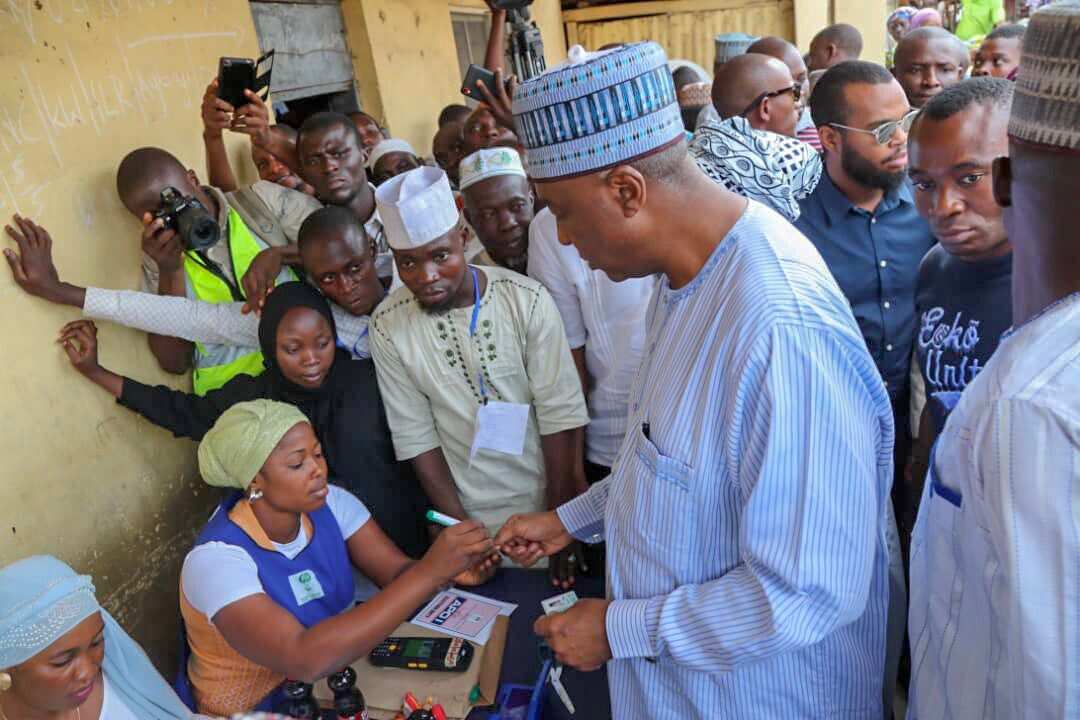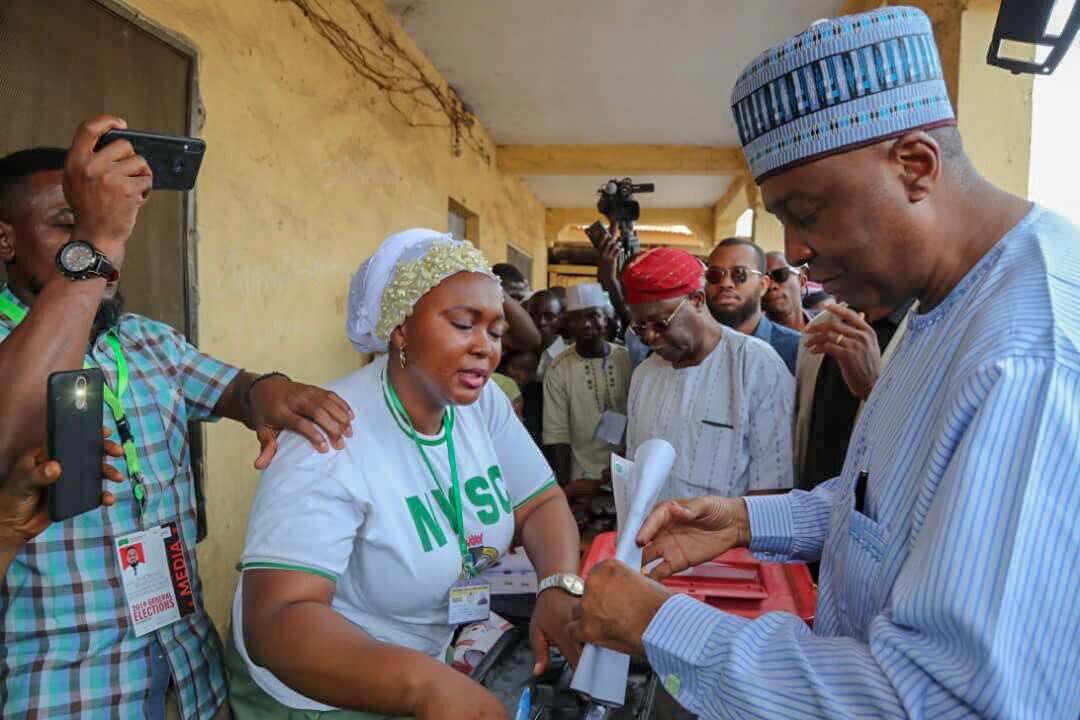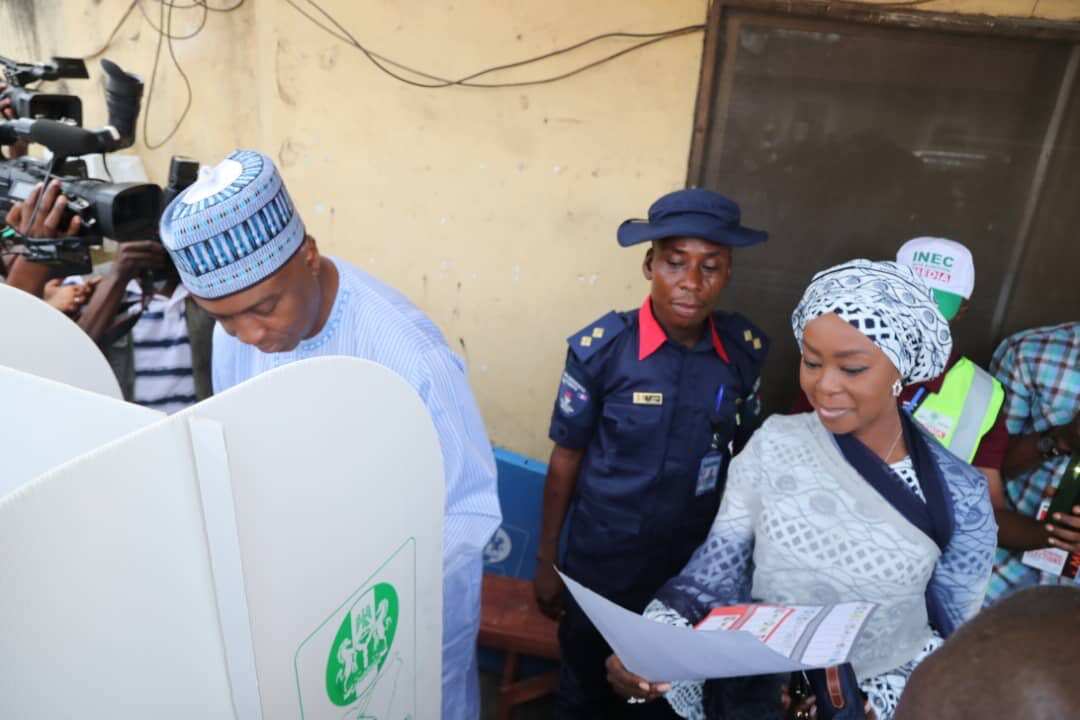- Senate President Bukola Saraki has cast his votes in the governorship and state House of Assembly elections in Kwara
- A large crowd of people gathered on the scene, cheering and hailing the Senate president, as he made his way to cast his vote
- Saraki, however, lamented over the low turn-out of voters which he said could be as a result of reports of military deployment in the state
Senate President Bukola Saraki has cast his votes in the Saturday, March 9 governorship and state Houses of Assembly elections.
The Senate president exercised his civic duty at Polling Unit 005/006 Agbaji Quarters, Ajikobi Ward, Ilorin West LGA, Kwara state.
READ ALSO: Guber polls: OBJ refuses to speak to journalists after voting
Legit.ng notes that he made the development public on his Twitter handle, @bukolasaraki.
As he tweeted:
See photos:

An INEC staff attends to the Senate president as he casts his vote (Photo credit: Twitter: @bukolasaraki)
Source: Twitter

The Senate president places his ballot paper in the ballot box (Photo credit: Twitter: @bukolasaraki)
Source: Twitter

Mrs Gbemi Saraki, wife of the Senate president, also cast her vote, alongside her husband (Photo credit: Twitter: @bukolasaraki)
Source: Twitter
Another Twitter user, @OluwoleOnemola, who is an aide to the Senate president, also put up a video on his handle, showing Saraki's arrival at the polling station.
A large crowd of people gathered on the scene, cheering and hailing Saraki, as he made his way to cast his vote.
See the video:
NAN also reports that the Senate president expressed disappointment over low turn-out of voters during the March 9 elections in the state.
Saraki, said he had been inundated with too many reports of military deployment in the state which could be the reason for the low turn-out.
Commenting on card readers, the Senate president said he had not received any reports of malfunctioning of the gadgets.
He added that since the independent National Electoral Commission (INEC) had insisted on the use of card readers, there must have been an improvement.
PAY ATTENTION: Install our latest app for Android, read best news on Nigeria’s #1 news app
Meanwhile, Legit.ng previously reported that Senate President Bukola Saraki congratulated the winner of the Kwara Central senatorial election which held on Saturday, February 23.
Yahaya Oloriegbe of the All Progressives Congress (APC) had defeated Saraki in the senatorial election by polling a total of 123, 808 votes to defeat the Senate president who scored 68,994 votes in the four local governments of the senatorial district.
NAIJ.com (naija.ng) -> Legit.ng: Same great journalism, upgraded for better service!
2019 Election: Nigerians react to Saraki's loss as INEC releases more results - on Legit TV:
Source: Legit.ng
from Nigeria News today & Breaking Naija news ▷ Read on Legit.ng 24/7 https://ift.tt/2J29L0z
via EDUPEDIA24/7
Comments
Post a Comment